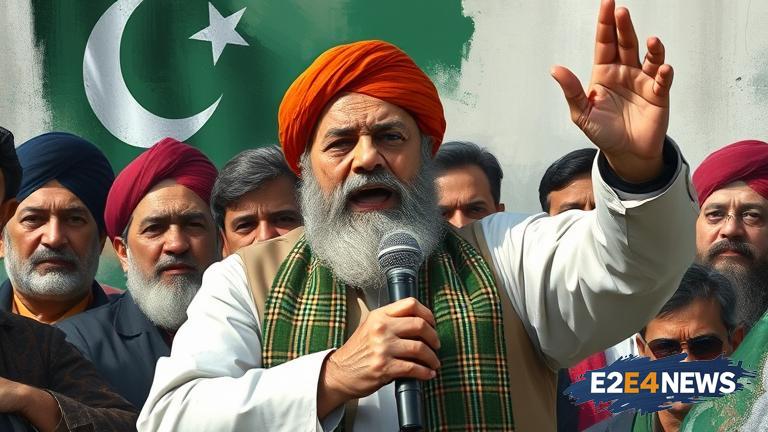Maulana Fazlur Rehman, the chief of the Jamiat Ulema-e-Islam-Fazl (JUI-F), has recently stated that the only way to bring about change in Khyber Pakhtunkhwa is from within the Pakistan Tehreek-e-Insaf (PTI) party. This statement has sparked debate and discussion among political analysts and observers. Fazl’s comments come at a time when the PTI-led government in Khyber Pakhtunkhwa is facing criticism and opposition from various quarters. The JUI-F chief’s suggestion that change can only come from within the PTI has been seen as a significant development in the province’s politics. It is worth noting that the PTI has been in power in Khyber Pakhtunkhwa since 2013, and during this time, the party has implemented various policies and projects aimed at developing the province. However, despite these efforts, the province still faces numerous challenges, including poverty, unemployment, and a lack of basic infrastructure. The JUI-F, on the other hand, has been a major opposition party in the province, and Fazl’s statement can be seen as an attempt to capitalize on the PTI’s weaknesses. The PTI, however, has rejected Fazl’s suggestion, with party leaders arguing that the JUI-F is trying to create divisions within the party. The PTI leadership has also accused the JUI-F of trying to destabilize the government in Khyber Pakhtunkhwa. Despite these denials, Fazl’s statement has highlighted the growing discontent among the people of Khyber Pakhtunkhwa with the PTI-led government. Many observers believe that the JUI-F’s strategy is to exploit this discontent and gain support from disillusioned PTI voters. The JUI-F has been actively campaigning in the province, with Fazl and other party leaders addressing public rallies and meetings. The party has also been trying to build alliances with other opposition parties in the province, in an effort to present a united front against the PTI. As the political landscape in Khyber Pakhtunkhwa continues to evolve, it remains to be seen whether Fazl’s strategy will pay off. The PTI, however, is confident that it will be able to maintain its grip on power in the province, despite the challenges it faces. The party has announced various development projects and initiatives aimed at addressing the province’s challenges, and party leaders are hopeful that these efforts will help to boost the party’s popularity. Nevertheless, the JUI-F’s efforts to bring about change in Khyber Pakhtunkhwa from within the PTI will likely continue to be a major factor in the province’s politics in the coming months and years. The situation is being closely watched by political analysts and observers, who are eager to see how events will unfold. As the stakes continue to rise, it is clear that the battle for control of Khyber Pakhtunkhwa will be a long and intense one. The people of the province will be hoping that the political instability will eventually give way to stability and progress, and that their leaders will be able to work together to address the province’s many challenges.
